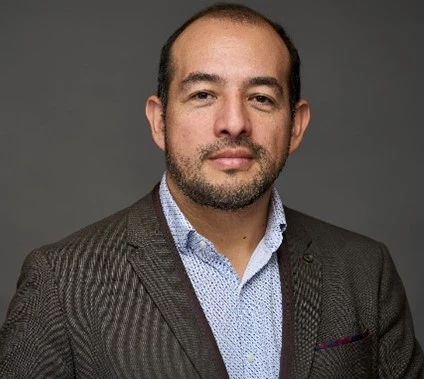Editor's Note: Join us April 22nd at 10AM ET for the 2017 Global Infrastructure Forum when the Multilateral Development Banks (MDBs), the United Nations, the G-20, and development partners from around the world meet to discuss opportunities to harness public and private resources to improve infrastructure worldwide, and to ensure that investments are environmentally, social and economically sustainable. Check out the event site to view the livestream on April 22.
The APMG PPP Certification Program enables participants to take their skills to the next level, and the Certified PPP Professional (CP3P) credential is a means to officially convey that expertise and ability.
At the core of the program is the PPP Guide, a comprehensive Body of Knowledge that distills globally agreed-upon definitions, concepts, and best practices on PPPs. The program is an innovation of the Asian Development Bank (ADB), the European Bank for Reconstruction and Development (EBRD), the Inter-American Development Bank (IDB), the Islamic Development Bank (IsDB), the Multilateral Investment Fund (MIF), and the World Bank Group (WBG), with financial support from the Public-Private Infrastructure Advisory Facility (PPIAF).
Whether you’re thinking about signing up, or already enrolled, in this series we share some insight from practitioners who have already passed the test. This week, we caught up with Daniel Pulido, senior infrastructure specialist at the World Bank Group. Read his answers below.
This is a unique certification program because it focuses on public-private partnerships and because it provides training and self-study testing to attain certification. What led you to pursue the CP3P credential?
I think the certification is a good idea as PPPs can be approached from multiple angles (government, private companies, users and regulators) and involve many different professional backgrounds (engineers, financial analysts, policymakers, lawyers and more lawyers…). Having a common understanding of the concepts, contract modalities, and project cycle stages can be extremely useful to improve our understanding of the subject.
Would you advise your peers to register, and why?
It is a good opportunity to get familiar with the general body of knowledge that the Bank and other institutions have produced on public-private partnerships (PPP). The Guide collects and harmonizes key concepts that are described differently across various reference materials. The guide can help PPP practitioners to refer to PPP concepts in a more consistent and technically rigorous manner in their analytical and operational activities, avoiding misrepresentations and oversimplifications; and to recognize all of the elements that have to be taken into account for successful implementation.
Please tell us more about your career. How do you plan to incorporate what you’ve learned?
I am a senior infrastructure specialist in the Transport Global Practice at the World Bank. Prior to joining the Bank, I worked in commercial banking, focusing on the financing of infrastructure projects in emerging markets. In my role at the Bank, I have to be familiar with the upstream public sector planning, project preparation and procurement issues, as well as with the private financing and contractual aspects that are critical for the structuring and execution of PPPs in the transport sector. I plan to incorporate what I have learned on a knowledge product I am working on that focuses on the use of PPPs in urban transport projects.
As someone who has already passed the PPP certification exam, what advice could you share with people who are studying for it right now?
The certification exam tests your familiarity with the body of knowledge, not your argumentation skills. The test is not concerned with your opinions, interpretations or beliefs regarding the subject of PPP, but with your ability to identify and describe concepts as defined in the guide.
Any other test preparation tips?
Read the guide, of course, but if available, try to sign up for a course. I attended one in August and found it very useful.
If you were going to add a test question, what would it be?
1. Is the hype around PPPs justified by the number of deals and investment amounts? What percentage of infrastructure projects (number and investment amount) are delivered via PPP relative to the total? What sector are most of the PPPs concentrated in in developing countries?
2. What can be done to prepare more and better PPPs so they can live up to their hype?
For that test question topic, could you recommend a related resource from the PPP Knowledge Lab?
The Private Participation in Infrastructure (PPI) Database, and the Benchmarking PPP Procurement 2017 report.
What is your favorite study snack?
The PPP of snacks: Popcorn, Peanuts or Pistachios.
Ready to register?
PPP certification leads to fruitful project preparation and implementation. To register, visit the APMG Public-Private Partnerships Certification Program website, where you will find the free and downloadable APMG International’s CP3P training course. You can book your exam up to one year in advance. The 40-minute multiple-choice test can be taken online or in person at one of several Accredited Training Organizations. More details are on the FAQs page. If you have any questions, please contact partnerships@apmg-international.com.
We look forward to hearing from you
Flagging a new World Bank Group consultation on the Guidelines for the Development of a Policy for Managing Unsolicited Proposals in Infrastructure Projects. Submit your feedback here - Now open through May 7, 2017.




Join the Conversation